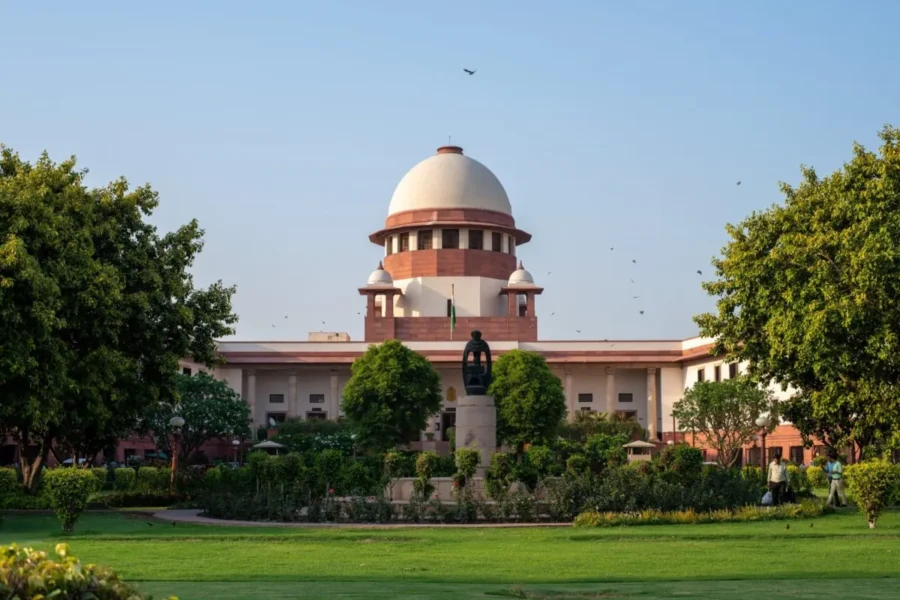Introduction:
Welcome to the official blog of the Law Offices of Kr. Vivek Tanwar Advocate and Associates, where we are dedicated to providing litigation support services for matters related to Section 138 NI Act. In today’s blog post, we aim to shed light on the prevailing issues surrounding Section 138 NI Act, the legal framework in place for their protection, and the steps we can take as a society to combat these acts. Join us as we explore this critical subject and empower you with the knowledge to protect your rights and safety.
In a recent legal pronouncement, the Supreme Court of India, in an appeal against the Judgment of the Punjab and Haryana High Court, reversed the acquittal order of the Trial Court in a case involving an offence under Section 138 of the Negotiable Instruments Act, 1881 (NI Act). The division bench of Aravind Kumar and SVN Bhatti, JJ. set aside the impugned judgment, allowing the complaint filed under Section 138 NI Act and convicting the accused.
Background of the Case:
The case revolved around an individual, the accused, who, along with his wife, approached the complainant for a loan. The complainant claimed to have lent the accused a substantial sum of money, believing that the accused would repay the borrowed sum along with interest. However, the accused failed to honour this agreement, changed his contact number without notice to the complainant, and, in 2017, was located by the complainant. The accused promised to repay the debt within three months but did not. He issued a post-dated check towards part repayment, which later bounced. The complainant sent a demand notice, yet the payment was not made, leading to the filing of a complaint under Section 138 of the NI Act.
Key Issues:
The main issues in this case revolved around two critical questions:
- Did the accused successfully discharge the evidential burden to rebut the presumption of law supplied by Section 139 of the NI Act?
- In the absence of the presumption under Section 139, did the complainant independently prove, beyond a reasonable doubt, that the check was issued in the discharge of a debt or liability?
Legal Analysis:
The Court made several pertinent legal observations during the case’s analysis. The Court distinguished between legal burden and evidential burden, emphasizing that the legal burden remains constant throughout a trial, while the evidential burden may shift depending on the evidence presented.
The Court explained that in all trials involving dishonoured checks, the courts must assess whether the elements of the offence under Section 138 of the NI Act are met and whether the accused can rebut the statutory presumption mandated by Section 139 of the Act.
The Court clarified that Section 139 creates a “reverse onus clause,” placing the responsibility on the accused to prove that the check was not issued in the discharge of a debt or liability. Additionally, it noted the existence of two crucial presumptions under the NI Act. Section 118 presumes that every negotiable instrument was made for consideration, while Section 139 presumes that the holder of the check received it for the discharge of a debt or liability.
The Court relied on precedents like Bir Singh v. Mukesh Kumar to support the notion that mere admission of the drawer’s signature, even without admitting the entire check’s contents, can trigger the presumption under Section 139.
Furthermore, the Court outlined two options for the accused to rebut the presumption. The first is to establish with certainty that the check was not issued in discharge of a debt or liability, while the second is to prove the non-existence of debt or liability by a preponderance of probabilities by referencing the case’s circumstances.
Court’s Conclusion:
In this case, the accused neither replied to the demand notice nor presented evidence to support his claims. The Court found the defence’s case riddled with contradictions and ultimately not credible. As per the Court’s interpretation, the presumption under Section 139 came into effect, shifting the evidential burden onto the accused.
The Court concluded that the accused had failed to discharge his evidential burden, which, in turn, allowed the complainant to meet all necessary elements for a conviction under Section 138 of the NI Act. It was determined that the complainant’s case remained consistent, while the accused’s case suffered from inconsistencies and contradictions.
The Court pointed out a fundamental flaw in the way the lower courts had considered the evidence on record, as the presumption under Section 139 should have been applied. Once the presumption was activated, the focus should have shifted to the accused’s case, and the accused had failed to discharge his evidential burden.
Implications:
This judgment serves as a significant legal precedent regarding the presumption created by Section 139 of the NI Act in cases of dishonoured checks. It emphasizes the importance of presenting credible evidence and avoiding contradictions in such cases. Ultimately, the Court’s decision demonstrates the significance of upholding the statutory presumptions in the NI Act and how a failure to rebut these presumptions can lead to a conviction under Section 138.
Conclusion:
The Supreme Court’s decision in this Section 138 NI Act case sets a clear standard for the burden of proof and evidential requirements in cases involving dishonoured checks. It underscores the importance of consistent and credible evidence to rebut the statutory presumptions mandated by the law. This case provides guidance for future legal proceedings and serves as a reminder of the legal obligations and responsibilities under the NI Act.
We are a law firm in the name and style of Law Offices of Kr. Vivek Tanwar Advocate and Associates at Gurugram and Rewari. We are providing litigation support services for matters related to Section 138 NI Act.

